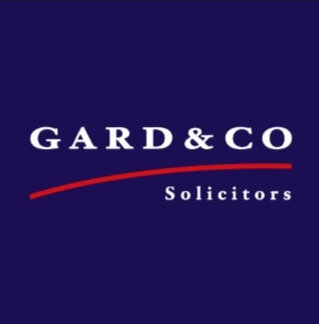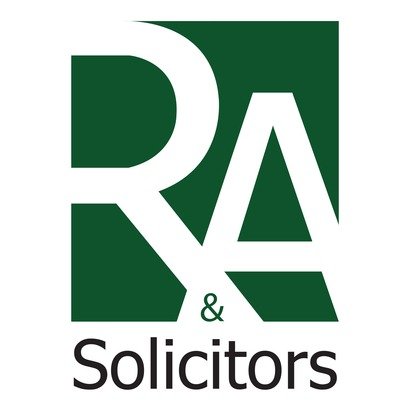Best Landlord & Tenant Lawyers in United Kingdom
Share your needs with us, get contacted by law firms.
Free. Takes 2 min.
Free Guide to Hiring a Real Estate Lawyer
Or refine your search by selecting a city:
List of the best lawyers in United Kingdom
About Landlord & Tenant Law in United Kingdom
Landlord and Tenant law in the United Kingdom governs the relationships between parties who rent property. This area of law seeks to protect the rights of tenants and landlords, lays down rules concerning the renting process, and covers the various aspects of renting property such as leases, tenancies, rent, repairs, and eviction. It is primarily governed by the Housing Act 1988, the Landlord and Tenant Act 1985, and various other regulations that ensure the health and safety of rented properties. Understanding these laws is crucial for both parties to prevent conflicts and ensure a mutual understanding of their rights and responsibilities.
Why You May Need a Lawyer
There are several situations where legal advice might be necessary in Landlord and Tenant matters:
- Disputes over rent increases or rent arrears.
- Eviction processes and disputes over the legality of an eviction notice.
- Issues concerning property repairs and maintenance responsibilities.
- Deposit disputes, especially regarding its return at the end of tenancies.
- Allegations of illegal eviction or harassment by a landlord.
- Clarification of rights in cases of renewal or termination of tenancies.
- Disputes over property damage or claims of disrepair affecting health and safety.
Legal assistance can provide clarity and expert guidance in navigating these complex issues, ensuring that parties take the proper action according to the law.
Local Laws Overview
Key legislative frameworks governing Landlord and Tenant relations in the UK include:
- Housing Act 1988: Establishes the grounds for repossession and types of tenancies, including Assured Shorthold Tenancies (ASTs).
- Landlord and Tenant Act 1985: Places obligations on landlords to keep properties in repair and outlines tenant rights regarding service charges and rent.
- Tenant Fees Act 2019: Limits the fees landlords can charge tenants and mandates the use of tenancy deposit protection schemes.
- Protection from Eviction Act 1977: Provides protection for tenants against illegal eviction and harassment.
These laws ensure that tenants are treated fairly and landlords can manage properties effectively.
Frequently Asked Questions
What is an Assured Shorthold Tenancy (AST)?
An AST is the most common type of tenancy in England and Wales. It allows landlords to rent out their properties privately for at least six months, after which they can regain possession of the property using a Section 21 notice, provided they follow legal procedures.
How can a landlord legally evict a tenant?
Eviction in the UK typically requires a landlord to serve a valid notice, such as a Section 21 or Section 8 notice, depending on the circumstances. They must follow specific legal processes to regain possession lawfully.
What are a tenant's obligations regarding rent?
Tenants are contractually obliged to pay the agreed rent on time. Failure to do so can lead to legal action or eviction if arrears persist.
How should repairs be handled in rental properties?
Landlords are generally responsible for most repairs, especially concerning the structure and exterior of the property, plumbing, and heating. Tenants should report issues promptly.
What can a tenant do if they believe their deposit has been unfairly retained?
Tenants can challenge deposit deductions through a tenancy deposit protection scheme's dispute resolution service or take the matter to a small claims court.
Can a landlord increase the rent during the tenancy?
During a fixed-term tenancy, landlords typically cannot increase the rent unless the contract explicitly allows it. In periodic tenancies, rent increases are allowed according to specific guidelines.
What happens if a tenant refuses to leave after the tenancy ends?
If a tenant does not vacate after the tenancy ends, landlords may need to seek a possession order through the courts to legally reclaim their property.
Are there any fees landlords can charge tenants?
Under the Tenant Fees Act 2019, landlords can only charge for allowable fees such as rent, a refundable tenancy deposit, and a holding deposit.
What protection do tenants have against retaliatory eviction?
Legislation such as the Deregulation Act 2015 protects tenants from retaliatory eviction if they make legitimate complaints about poor housing conditions.
What should a tenant do if they face harassment from their landlord?
Tenants can report harassment to local authorities or seek legal assistance. Harassment is a criminal offense under the Protection from Eviction Act 1977.
Additional Resources
For additional legal guidance and support, consider these resources:
- Citizens Advice: Provides free advice on housing and rental issues.
- Shelter: A housing charity that offers information and support for tenants facing housing problems.
- The Property Ombudsman: Resolves disputes between landlords, tenants, and letting agents.
- The Housing Ombudsman Service: Offers dispute resolution services for social housing tenants.
Next Steps
If you need legal assistance regarding a Landlord & Tenant matter, consider the following steps:
- Gather all relevant documents, such as your tenancy agreement, rent records, correspondence with your landlord or tenant, and evidence of any disputed issues.
- Consult local legal aid services, as qualified individuals may be eligible for free legal assistance.
- Contact a specialist solicitor with experience in Landlord & Tenant law. Professional legal counsel can offer tailored advice and representation.
- Consider mediation if both parties are open to resolving disputes amicably with the help of an impartial mediator.
Lawzana helps you find the best lawyers and law firms in United Kingdom through a curated and pre-screened list of qualified legal professionals. Our platform offers rankings and detailed profiles of attorneys and law firms, allowing you to compare based on practice areas, including Landlord & Tenant, experience, and client feedback.
Each profile includes a description of the firm's areas of practice, client reviews, team members and partners, year of establishment, spoken languages, office locations, contact information, social media presence, and any published articles or resources. Most firms on our platform speak English and are experienced in both local and international legal matters.
Get a quote from top-rated law firms in United Kingdom — quickly, securely, and without unnecessary hassle.
Disclaimer:
The information provided on this page is for general informational purposes only and does not constitute legal advice. While we strive to ensure the accuracy and relevance of the content, legal information may change over time, and interpretations of the law can vary. You should always consult with a qualified legal professional for advice specific to your situation.
We disclaim all liability for actions taken or not taken based on the content of this page. If you believe any information is incorrect or outdated, please contact us, and we will review and update it where appropriate.
Browse landlord & tenant law firms by city in United Kingdom
Refine your search by selecting a city.














